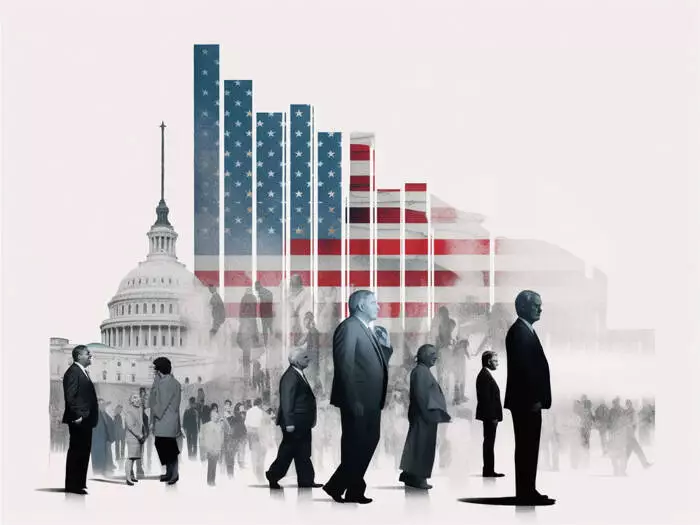The burgeoning political betting industry is becoming a significant player in the consumer finance landscape, yet it grapples with credibility issues that could undermine its growth. Recent developments, particularly a high-profile case of a French trader engaging in massive multi-million dollar wagers on Trump contracts, have raised serious questions about the integrity of these prediction markets. Despite no illegal activities being uncovered, the episode spotlights the inherent vulnerabilities faced by thinly traded platforms that lack rigorous regulatory oversight. Such incidents could dissuade potential investors who are wary of market manipulation.
Economic Context: The Bond Market and Deficit Woes
Contrasting the excitement surrounding election bets, notable figures in finance are sounding alarms over more pressing economic conditions, chiefly the staggering U.S. deficit, which is projected to reach an alarming $1.8 trillion in 2024. Renowned hedge fund manager Paul Tudor Jones has highlighted the profound dangers this fiscal situation poses, not only in terms of electoral outcomes but also as a precursor to a potential bond market crisis. According to Jones, the ramifications could include a significant upswing in interest rates, a development that would ripple throughout the economy, affecting everything from consumer loans to corporate financing.
His concerns extend beyond mere speculation; Jones suggests that both leading presidential candidates are ill-equipped to confront this looming fiscal challenge, given their past approaches to deficit spending. The specter of a “Minsky moment” looms over these discussions—a term that denotes a sudden market collapse precipitated by inconsistent fiscal policies. Jones has thus preemptively reduced his holdings in bonds, anticipating that volatility in the market will spike as investor confidence in U.S. fiscal stability wanes.
A Pivotal Intersection of Politics and Economics
As the political betting markets heat up alongside the upcoming elections, participants are compelled to consider the broader economic landscape. With Robinhood’s election contracts set to roll out, investors are faced with a complex decision matrix: should they engage in the tantalizing realm of political speculation or take heed of the fiscal headwinds outlined by Jones? The allure of capitalizing on political outcomes may be powerful, but the specter of worsening economic conditions adds layers of risk that cannot be overlooked.
The post-election environment might force lawmakers to confront difficult decisions, potentially re-evaluating tax cuts implemented during the Trump administration or making deep cuts to public spending. The implications for an incoming president are daunting, as they may inherit a political and economic quagmire requiring solutions that defy traditional party lines and political dogmas.
While the nascent political betting market offers novel investment avenues, the intersection of economic pressures creates a uniquely volatile environment for traders. The interplay between speculative political opportunities and foundational fiscal concerns serves as a microcosm of the current American landscape—a landscape where democratic choices overlap with pressing economic realities. Investors must navigate these choppy waters carefully, weighing the ephemeral excitement of political bets against the consequential shifts in the economy that could redefine the future. Their ability to adapt to an evolving landscape will determine not only their success but their survival in an increasingly unpredictable market environment.

